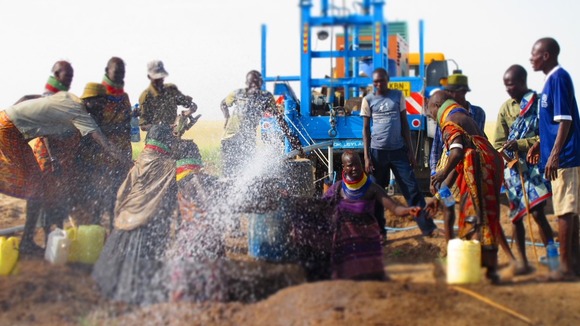The United States has injected Sh25 billion for underground water exploration in Turkana aimed at easing perennial water problem in the area.
US ambassador to Kenya Robert Godec said the US believes Turkana’s underground water is enough to supply water to the entire semi-arid Northern Kenya.
Mr Godec also revealed that a mapping project on water exploration in Turkana will be carried out to establish how the water resource will be exploited.
“We have supported this project with $250 million. It will help understand what is available and how we are going to access it,” Godec said.
He added that the underground water will be supplied to neighbouring West Pokot, Marsabit and other Northern Kenya counties.
In 2013, two aquifers were discovered near Lodwar and Lotikipi in Turkana, with capacities of 10 and 200 billion cubic metres respectively.
Turkana is one of the hottest, driest and poorest parts of Kenya and has been hit by a devastating drought for many years.Many of the region’s inhabitants are nomadic herders, who are especially vulnerable to a lack of rain.
Godec also launched another Sh3.8 billion US – funded water supply project aimed at supplying clean water to homesteads in the region.
Godec noted that Turkana was well on its way to prosperity considering that Turkana Wind Power project, will soon generate an additional 310MW of electric power to the national grid.
“Wind power will bring back over Sh660 million to the local communities as corporate social responsibility,” Godec said.
He lauded devolution, saying it has helped transform lives in marginalised areas.
“There are good indications devolution is genuinely making a difference in many counties,”Godec added.
He said the US will continue to support peace building initiatives in the drought and banditry-hit areas in Northern Kenya.
Turkana Governor Josphat Nanok said the support will compliment the county government’s efforts to end water scarcity.
“We welcome the support by our development partners. It will help us realize our development goals faster,” Nanok said.
In 2015 there were reports that initial test results from Lotikipi – the largest aquifer which is close to Kenya’s border with South Sudan showed that the water is too salty to drink.

